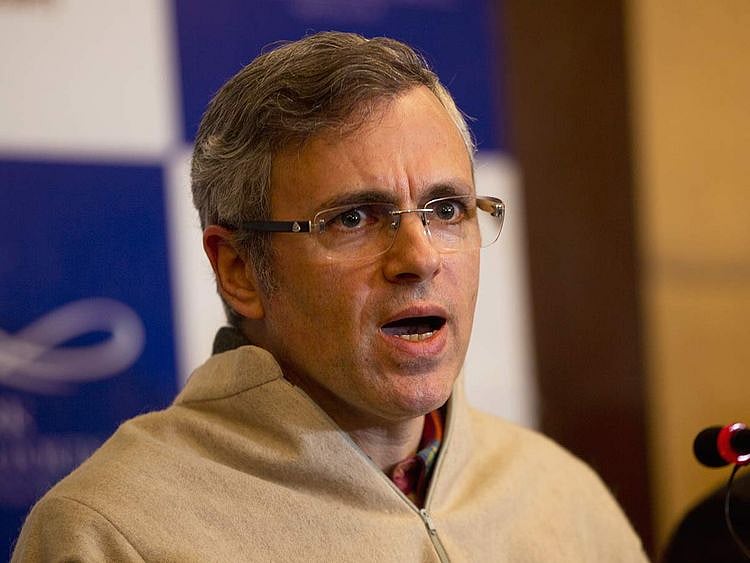Many watching the minute-by-minute coverage of the assembly election results in Haryana and Jammu & Kashmir would certainly have noticed how the narrative shifted within three hours. Great psephologists and experts on the panels of most leading TV channels were predicting a huge victory for Congress in Haryana. They also predicted the J&K results would be divided, with Jammu voting for the BJP and the Valley going the other way.
But something very different happened in Haryana, and J&K saw notable surprises too. Let me begin with the latter. Talk of the release of “Engineer” Sheikh Abdul Rashid leading to surprise reconfigurations was belied. I must admit that I, too, who thought the Valley might throw up a mixed verdict, was proved wrong. Instead, the people favoured continuity and stability by voting back the National Conference. The Mufti party, PDP, was practically wiped out. For the first time, there would be no member of Kashmir’s second family either in the J&K assembly.
With 42 seats out of 90 and the support of Congress, which has 6, not to mention the possible backing of a couple of independents, the I.N.D.I. alliance is all set to form the government. Omar Abdullah, son of Farooq Abdullah and grandson of Sheikh Abdullah, who is credited as the father of the post-independence state of J&K, will once again be the chief minister. We might recall that Omar was defeated by the jailed, in-absentia candidate Rashid in the Baramulla constituency during the Lok Sabha elections. But he bounced back handsomely and made statesmanlike opening remarks as the CM-in-waiting. Rashid’s brother won from the Langate assembly seat.
Also Read
Kashmir votes: A wildcard candidate and a region's uncertain futureHow inaction fuels crime in India’s capitalModi’s US visit highlights strategic ties amid global uncertaintyDevelopment and welfare of J&K
The voter turnout in J&K, at 63.9%, was higher than the 58.5% in the general elections earlier this year. This indicates that the results were also an endorsement of Article 370, at least for the time being. Law and order remain with the Centre. Omar Abdullah’s promise to cooperate with the Centre for the state’s welfare must have struck a responsive chord in both Srinagar and New Delhi. Certainly, Prime Minister Narendra Modi warmly congratulated him and promised to aid in the development and welfare of J&K.
The surprise in these elections was the BJP, which, although it bagged 29 seats to NC’s 42, emerged as the single largest party in the state in terms of vote share. It polled 25.64% of the votes, while the NC got 23.43%. Interestingly, “Others,” which includes non-party independents, actually came second, with 24.83%.
Experts' forecasts fall flat
The world was watching the J&K elections. Observers and the press from around the globe were granted free access to monitor the entire process. Most would agree that the polling was free and fair. After decades of insecurity and militancy in the region, we can hope for the return of peace and prosperity.
Once again, the maturity of Indian democracy was evident: as long as the shadow of the gun does not loom large over the people, they will exercise their franchise wisely and freely. Much more needs to be done, but for now, Modi and Amit Shah must be credited with the great leap forward in J&K.
Jump to Haryana, where everyone was mistaken. I saw both pundits and pollsters looking flustered, embarrassed, and then making U-turns to justify themselves — and when that failed, to justify the results. The latter is the usual practice, in any case. You can give a hundred reasons after the fact to explain what happened. But not being able to predict how people vote is actually refreshing. Neither data crunching nor analysis can fully anticipate human behaviour. And thankfully so!
Now let me come to the great lesson from the recent elections in India, both at the Centre and the state. Add to that what we know about the American elections of 2020 and 2016, and other instances when approval ratings and exit polls were proven wrong. It seems that ordinary people in the great democracies of the world have decided to outsmart machines, surveys, sampling, and, above all, social media.
They will simply not disclose what they are actually thinking, let alone doing. By not revealing their true inclinations, the ordinary women and men who make up the general populace are pushing back against the gigantic machinery of manipulation unleashed by big media, big money, and big data. They will keep their cards — or should I say ballot papers — close to their chest until voting day. This is their pushback and the true assertion of their freedom of choice.
I am so glad that pollsters and experts are wrong. I would rather that the ordinary people be right and exercise their rights.
Network Links
GN StoreDownload our app
© Al Nisr Publishing LLC 2026. All rights reserved.
